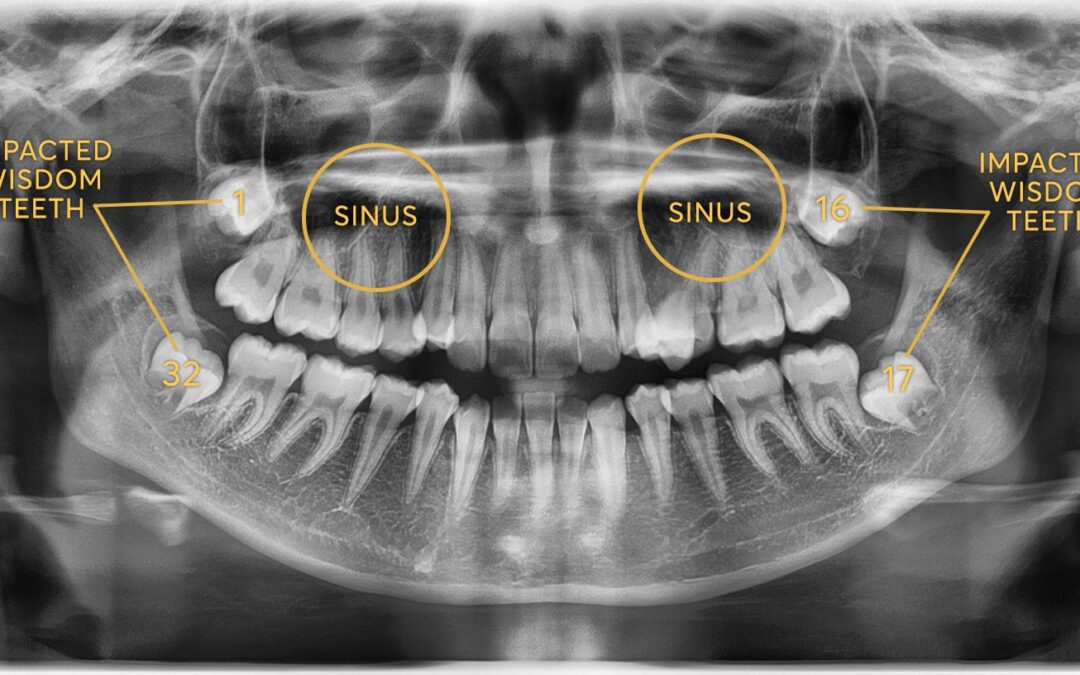Wisdom Teeth Extractions Overview
Our expert Key West dentists regularly perform wisdom teeth extractions, a common procedure to fix or prevent problems with your last set of molars. Wisdom teeth are quite large and therefore cutting them may be a painful experience, especially since they don’t necessarily all come in at the same time. If a wisdom tooth erupts, it may cause pain called pericoronitis. When the wisdom tooth comes through in this way, the gum tissue surrounding the tooth often gets swollen and sore, causing mild to moderate pain.
What can I expect to happen in a wisdom tooth removal?
Ahead of your oral surgery, your surgeon will use your x-rays to check out the positioning of your wisdom teeth and their roots which will determine the difficulty level of the procedure.
Assuming you are having the surgery with our surgeon, Dr. Nathan Eberle MD, DDS, FACS, he will utilize the surgical suite at the Key West office.
Dr. Eberle will use a local anesthetic that will numb your mouth so the procedure will be less painful.
In order to perform the extraction, it is necessary to open up the gum tissue and remove any bone that may be covering the tooth. Your surgeon may choose to cut the tooth up into smaller sections if this makes the removal process easier.
Wisdom teeth problems
Wisdom teeth are quite large and therefore cutting them may be a painful experience, especially since they don’t necessarily all come at the same time. Wisdom teeth are made up of four sections and many people find that they erupt one corner at a time. This is called pericoronitis. When the wisdom tooth comes through in this way, the gum tissue surrounding the tooth often gets swollen and sore, causing mild to moderate pain.
The gum edges are also susceptible to infection as tiny particles of food and bacteria can collect there, even when the area is thoroughly cleaned several times a day. Roundhead toothbrushes and antiseptic mouthwash can help prevent this from happening, but if your wisdom tooth does get infected, you will be prescribed a course of antibiotics to completely clear any infection.
If you suffer from recurrent wisdom tooth infections, or your wisdom teeth are proving to be particularly difficult to cut through, your surgeon may recommend surgical intervention to remove the wisdom teeth altogether.
Why might I need my wisdom teeth removed?
Your surgeon will only perform a surgical intervention on your wisdom teeth if it is absolutely necessary.
Reasons for removal are normally limited to:
- Your wisdom teeth do not have the space to come through and will impact negatively upon your existing teeth if they do.
- If you are suffering from recurrent pain and infections requiring regular courses of antibiotics.
- If your wisdom teeth are damaged and decayed beyond use.
After surgery
After your wisdom tooth is out, your surgeon may pack the area with gauze for a short while to help stop any bleeding and your mouth may be numb for several hours after while the anesthetic wears off. Any bleeding should have completely stopped within 24 hours, but if it hasn’t, you should seek guidance from your surgeon.
You may be asked to refrain from smoking, eating anything too chewy or tough, and from drinking alcohol for at least the first several days to give the wound time to heal. You should also avoid lying flat and doing any physical exercise since this may prolong any bleeding.
Your surgeon may suggest an anti-inflammatory analgesic since your mouth could be swollen for several days after the surgery. However, within a week you can expect your face to have completely returned to normal.
Around 1-2 weeks, expect to schedule a follow up visit with Dr. Nathan Eberle MD, DDS, FACS.
Contact us today at Keys Dental Specialists to schedule an appointment for dental exams, checkups, teeth whitening, cleanings, veneers, dental bonding, extractions, dental implants, dental emergencies, dentures, Invisalign, dental crowns, and dental bridges.




